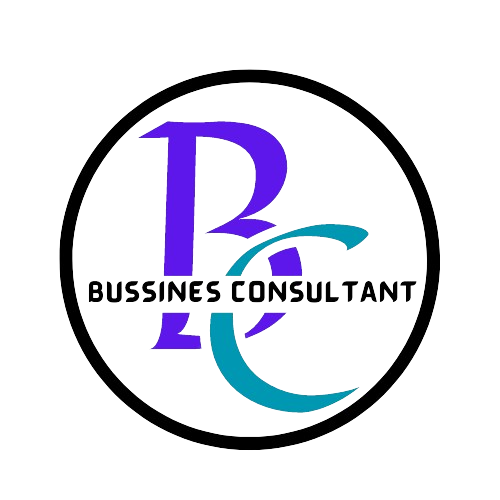Understanding sustainable business practices!
Sustainable Practices
Definition of Sustainable Business
Sustainable business practices focus on creating economic value while preserving the environment and improving social equity. These practices ensure that businesses operate in a way that meets current needs without compromising the ability of future generations to theirs.
Importance in Today’s Economy
As climate change and resource depletion become more pressing issues, sustainable practices are not just an ethical choice but a necessity. Companies that embrace sustainability often find themselves more resilient and better positioned to meet consumer demands for environmentally friendly products and services.
Current Trends in Sustainability
Currently, many businesses are shifting towards sustainability through various trends, such as adopting circular economy principles, increasing transparency in their supply chains, and investing in renewable energy. These trends indicate a growing recognition that sustainable practices can drive innovation and profitability.

Case Studies of Successful Sustainable Businesses practices
Interface Inc.
Overview of Company Origins
Founded in 1973, Interface Inc. started as a carpet tile manufacturer and has evolved to become a leader in sustainability within the carpet industry.
Innovative Recycling Initiatives
Interface’s “Net-Works” program collects discarded fishing nets from coastal communities to recycle them into new carpet tiles. By turning waste into a valuable resource, Interface not only reduces environmental impact but also supports local economies.
Impact on Carpet Industry Sustainability
Interface aims to become a carbon negative company by 2040, setting a benchmark for the carpet industry. Their initiatives have influenced competitors to adopt similar practices, fostering a more sustainable marketplace.
Patagonia
Commitment to Environmental Activism
Patagonia stands out for its unwavering commitment to environmental causes. The company donates a percentage of its sales to grassroots organizations fighting environmental issues, reflecting its belief that businesses should take a stand on critical social issues.
Fair Labor Practices and Transparency
Patagonia emphasizes fair labor practices and maintains transparency in its supply chain. This commitment ensures that workers are treated ethically, which resonates with consumers looking for responsible brands.
Product Lifecycle Initiatives
Patagonia encourages customers to repair their gear instead of discarding it. Their “Worn Wear” program promotes the idea of extending product life, showcasing a practical approach to sustainability that benefits both the environment and the consumer’s wallet.
Unilever
Sustainable Living Plan Overview
Unilever’s Sustainable Living Plan outlines its objectives to decouple growth from environmental impact while increasing its positive social impact. This comprehensive plan guides the company’s operations and product development. Check out more about Business strategies.
Reducing Environmental Impact
From reducing water usage in its manufacturing processes to ensuring all its plastic packaging is recyclable by 2025, Unilever is leading the way in minimizing its environmental footprint through effective and measurable actions.
Community Engagement and Fair Trade
Unilever actively engages with local communities through fair trade practices, ensuring that farmers and suppliers are paid fairly. This commitment not only strengthens their supply chain but also builds trust with consumers.

Key Strategies for Implementing Sustainable Business Practices
Supply Chain Management
Ethical Sourcing of Materials
Businesses should prioritize ethically sourced materials, ensuring that sourcing practices support sustainability and social equity.
Assessing Supplier Sustainability
Regular assessments of suppliers on sustainability criteria can forge mutually beneficial agreements that promote green practices throughout the supply chain.
Reducing Transportation Emissions
Optimizing logistics and considering local suppliers can significantly reduce transportation emissions, contributing to a more sustainable operation.
Employee Engagement and Training
Creating a Sustainability Culture
Building a culture centered around sustainability empowers employees and fosters a community of environmentally conscious individuals.
Training Programs on Sustainable Practices
Implementing training programs helps employees understand their role in sustainability efforts, from reducing waste to promoting green practices at work and home.
Encouraging Employee Innovation
Organizations can benefit from encouraging their employees to propose and implement innovative ideas that improve sustainability, fostering a sense of ownership and engagement.
Sustainable Technology Adoption
Investment in Renewable Energy
Investing in renewable energy sources can significantly lower operational costs in the long run and demonstrate a commitment to sustainability.
Digital Solutions for Efficiency
Utilizing digital tools can enhance efficiency, enabling businesses to track sustainability metrics and identify areas for improvement.
Innovations in Waste Management
Adopting innovative waste management systems can minimize waste generation and promote recycling, improving overall sustainability.
Challenges and Solutions in Sustainable Business Practices
Common Barriers to Implementation
Financial Constraints
Many businesses perceive sustainability initiatives as financially burdensome, often sidelining them in favor of short-term profits.
Resistance to Change
Cultural inertia can hinder the adoption of sustainable practices, leading to resistance from employees and management.
Lack of Consumer Awareness
Consumers may not fully appreciate the benefits of sustainability, which can limit demand for eco-friendly products.
Overcoming Obstacles
Long-term Investment Perspective
Viewing sustainability as a long-term investment rather than a short-term cost can help businesses prioritize initiatives.
Effective Communication Strategies
Transparent communication about sustainability goals and progress can motivate both employees and customers to support eco-friendly initiatives.
Collaborations and Partnerships
Businesses can harness the power of partnerships with NGOs, governments, and other companies to share resources and expertise on sustainable practices.
Measuring Success and Impact
Key Performance Indicators (KPIs)
Establishing KPIs related to sustainability metrics allows companies to monitor progress and make data-driven decisions.
Reporting and Transparency
Regular reporting about sustainability efforts builds trust with consumers and stakeholders, showcasing a commitment to accountability.
Adapting Based on Feedback
Listening to feedback from both employees and customers helps businesses refine their sustainability strategies over time.
Future of Sustainable Business Practices
Emerging Trends and Innovations
Circular Economy Principles
The transition toward a circular economy challenges businesses to rethink linear resource use and embrace models that promote recycling and reusability.
Advances in Eco-Friendly Technologies
Technological innovations, such as biodegradable materials and energy-efficient practices, are paving the way for greener industries.
Shifts in Consumer Behavior
Increasing consumer preference for sustainable brands creates opportunities for businesses to differentiate themselves in the marketplace.
Role of Govt and Regulation
Policies Promoting Sustainability
Government policies that promote sustainable practices can drive changes across industries, highlighting the vital role of regulation.
Incentives for Eco-Friendly Businesses
Incentives such as tax breaks or grants for sustainable improvements can encourage businesses to invest in green practices.
International Agreements and Standards
Adopting international sustainability standards helps businesses engage in a global commitment to sustainable development.
Importance of Community Involvement
Engaging Local Communities
Building relationships with local communities enhances sustainability efforts and ensures that businesses understand the needs of those affected by their operations.
Education and Awareness Programs
Running educational initiatives increases awareness of sustainability issues, empowering individuals to make greener choices.
Building Local Economic Resilience
Supporting local economies strengthens community ties and enhances sustainability, as these businesses often operate with a more considerable concern for their environment.
Conclusion
Sustainable business practices are essential for long-term viability in today’s economy. Companies featured, such as Interface, Patagonia, and Unilever, demonstrate that integrating sustainability can enhance brand loyalty, drive innovation, and improve financial performance.
As awareness of environmental issues surges, embracing sustainability is no longer optional; it’s a pathway to ensuring a thriving future.
Companies should take inspiration from successful examples and strive to implement sustainable practices that benefit their business, society, and the planet.
Sustainable business practices involve strategies that reduce environmental impact, promote social equity, and foster economic growth.
Small businesses can start by assessing their supply chains, reducing waste, and engaging employees in sustainability efforts.
Benefits include reduced costs, increased brand loyalty, better compliance with regulations, and enhanced competitiveness.
While initial costs may be higher, sustainable practices often lead to long-term savings and increased customer base, ultimately boosting profitability.
Absolutely! Sustainable practices can drive innovation and efficiency, supporting both growth and environmental stewardship.




